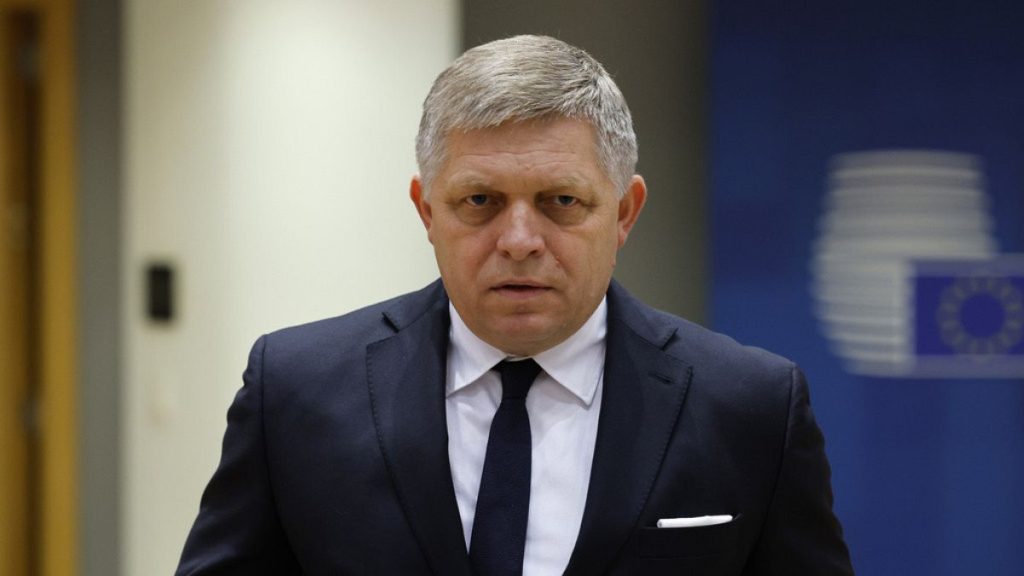The termination of the gas transit agreement between Ukraine and Russia, effective January 1, 2024, has sparked concerns about its potential impact on the European Union, particularly Slovakia. This long-standing agreement, which facilitated the flow of Russian gas to several EU member states through Ukrainian pipelines, ended after Kyiv declined to renew it with Gazprom, the Russian state-owned energy giant. This decision follows the backdrop of the ongoing conflict between Russia and Ukraine, which began with Russia’s full-scale invasion in early 2022. Slovakia’s Prime Minister Robert Fico, known for his Kremlin-friendly stance, has voiced strong concerns about the repercussions of this termination, arguing that the EU, not Russia, will bear the brunt of the consequences.
Fico has repeatedly stressed the economic implications for the EU, estimating a potential cost of €120 billion over the next two years. For Slovakia, the loss is projected to reach €500 million annually in transit fees alone. This underscores Slovakia’s heavy reliance on Russian gas transit, not only for its own energy needs but also for the revenue generated from facilitating its passage to other European nations. Fico’s concerns reflect Slovakia’s position as a key transit country for Russian gas, and the economic ramifications of losing this revenue stream are significant. His public disagreement with Ukrainian President Volodymyr Zelenskyy in the weeks leading up to the agreement’s expiry highlighted the escalating tensions and differing perspectives on the matter.
The Slovakian Prime Minister’s meeting with Russian President Vladimir Putin in Moscow in December 2023 further fueled speculation about Slovakia’s alignment with Russia amid the ongoing conflict with Ukraine. Fico became only the third EU leader to visit Putin in the Kremlin since the start of the full-scale invasion. This meeting, primarily focused on gas supplies, underscored the importance of this issue in the bilateral relationship between the two countries. Following the meeting, Fico’s suggestion of “reciprocal measures” against Ukraine, including potentially halting backup electricity supplies, further strained relations between Slovakia and Ukraine. While Kyiv immediately dismissed the threat, Poland offered to support Ukraine by increasing its energy exports in the event of such an action.
Despite the immediate concerns about the termination of the gas transit agreement, Slovakia has announced that it does not anticipate a gas shortage in the near future. This confidence stems from several strategic moves made by the Slovakian government to diversify its gas supply. These include a short-term pilot contract with Azerbaijan for natural gas purchases and a separate agreement to import liquefied natural gas (LNG) from the United States via a pipeline through Poland. These arrangements provide alternative sources of gas, reducing Slovakia’s dependency on Russian supplies. Furthermore, Slovakia’s access to gas networks in Austria, Hungary, and the Czech Republic offers additional import options, including potential supplies from Germany. These diversified supply routes strengthen Slovakia’s energy security and mitigate the potential impact of the lost Russian gas transit.
The cessation of the gas transit agreement between Ukraine and Russia represents a significant shift in the European energy landscape. While Slovakia, along with other EU members, faces the challenge of adjusting to this new reality, the country has taken steps to secure alternative gas supplies and minimize the potential economic fallout. The long-term implications of this decision remain uncertain, with potential consequences for energy prices, regional stability, and the complex geopolitical dynamics between Russia, Ukraine, and the European Union.
The situation highlights the delicate balancing act for countries like Slovakia, caught between their historical energy dependence on Russia and the evolving political landscape in the region. The broader effects on the EU, as predicted by Fico, remain to be seen. The coming months will be crucial in assessing the true economic impact, the effectiveness of Slovakia’s diversification strategy, and the broader geopolitical ramifications of this significant energy shift. The interplay of these factors will undoubtedly shape the future of energy security in the region.














